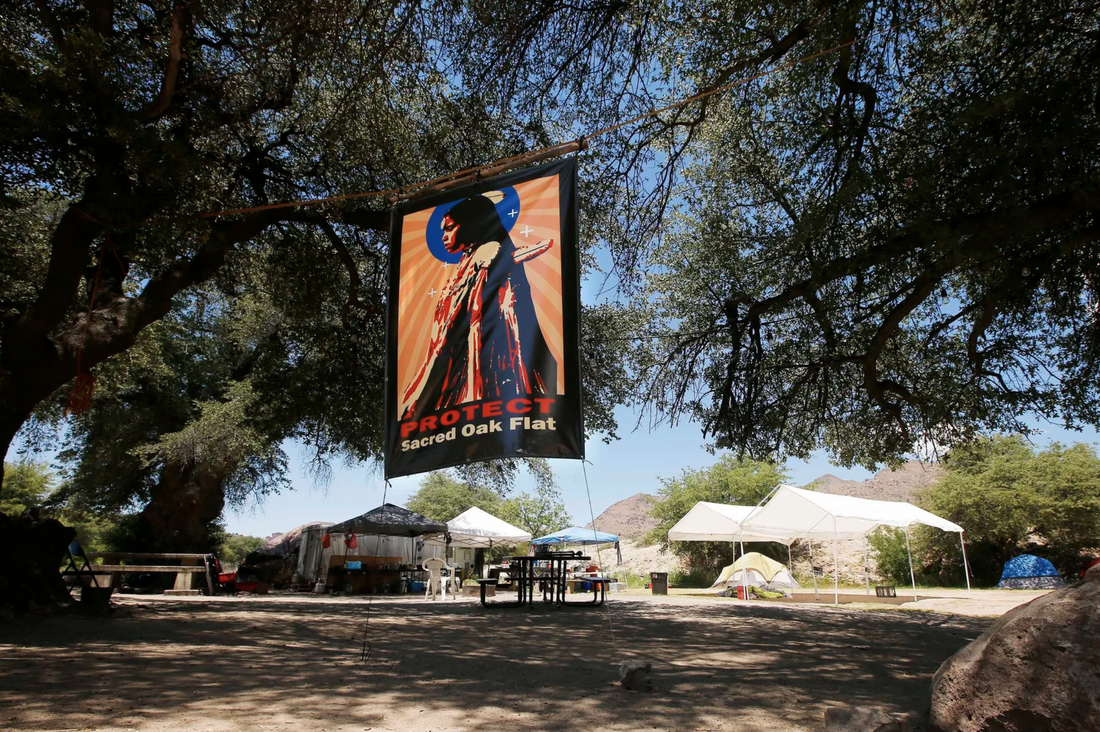 This June 15, 2015, file photo shows an encampment belonging to protesters in the Oak Flat area of Superior, Ariz. The mountainous land is also known as Chi’chil Bildagoteel. It’s where Apaches have harvested medicinal plants, held coming-of-age ceremonies and gathered acorns for generations. PHOTO CREDIT: Ross D. Franklin, Associated Press The Apache-Stronghold is desperately trying to prevent the government from enacting a land swap that would turn over their sacred land, called Oak Flat, to foreign mining interests. If they ultimately lose, land the Apache have held to be a holy site for centuries will be turned into a two-mile wide sinkhole.
Luke Goodrich, vice president and senior counsel at the Becket Fund for Religious Liberty, gave an insightful interview with The Deseret News explaining what courts don’t get about Native American religion. “If the government took land owned by a Baptist church to build a highway, the Baptists could build another church on the other side of town. For many religious groups, that would be possible. But Native Americans can’t go create a new sacred site on the other side of town. Their religious practices are inherently tied to a specific piece of land.” Goodrich described the government position as “saying the Apaches who worshipped at Oak Flat for millennia and whose whole identity is tied to that land don’t have a recognizable burden to oppose the government blasting it to oblivion. “What’s missing from that decision is the fact that it’s only government land because it was taken from the tribes by force. It’s like the court is saying, ‘the government took this land from you back in the 1800s. Therefore, it can now do whatever it wants.’ “There’s often just a remarkably callous disregard of Native Americans and Native American religious practices.” Comments are closed.
|
Archives
June 2024
Categories
All
|
ABOUT |
ISSUES |
TAKE ACTION |


 RSS Feed
RSS Feed